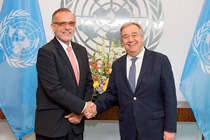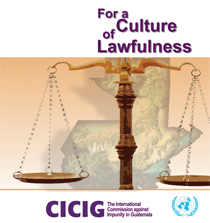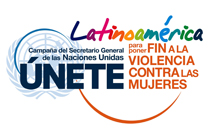 Guatemala, May 19, 2011. Although the term "white-collar crime" is nothing new, it would seem that many people fail to understand its meaning or they forget that in the "upper echelons" of our society there are criminals who strive to get their own way.
Guatemala, May 19, 2011. Although the term "white-collar crime" is nothing new, it would seem that many people fail to understand its meaning or they forget that in the "upper echelons" of our society there are criminals who strive to get their own way.
It was at the annual meeting of the American Sociological Society (Philadelphia [USA], 1939) where Edwin H. Sutherland coined the term to refer to "a crime committed by a person of high social status in the course of his occupation". He was naturally referring to senior government officials, ministers and public servants.
The phrase readdressed the accepted concept of that time: crime was an activity conducted exclusively by low social classes. Furthermore, he said that "white-collar criminals" were normally released at trial because of their influences, economic resources, peer support, friendly agreements, the bureaucratic sluggishness of justice and [their access to] the machinery and resources needed to ensure their prison time was as short as possible.
What is this crime?
A public servant commits embezzlement if he or she misappropriates, or enables another individual to misappropriate, State funding or assets in the course of his or her duties. It carries a maximum prison sentence of three years and a maximum of ten years as well as a fine of between GTQ 500 and GTQ 25,000, pursuant to Section 445 of the Criminal Code of Guatemala.
The same punishment is handed to those individuals who, while working in public office, take advantage of their positions or the services paid by Government funds for their own personal gain.
The crime of embezzlement consists in the actions taken by a public servant or official to remove an asset or funds belonging to the State in order to have possession over it. A public servant can commit embezzlement through a number of different means.
In contrast, the action of admitting or enabling refers to actions taken by an official to overlook the illegal misappropriation of State assets and funding by one or more people and the former's failure to denounce the act despite having knowledge of its occurrence.
Furthermore, Section 446 of the Criminal Code sets forth that culpable embezzlement is the act whereby a public servant or official, through negligence or a lack of oversight, allows the misappropriation of public funds. This crime bears no prison sentence but rather a fine of between GTQ 100 and GTQ 1000.
Former President Alfonso Portillo and former ministers Eduardo Arévalo Lacs (Defence) and Manuel Maza Castellanos (Finance) were recently tried in Guatemala on the charge of embezzlement. They were all acquitted at a first instance hearing by two of three judges (Morelia Ríos, president of the Court, issued a dissenting vote against the acquittal).
The Public Prosecutor's Office (MP) and the International Commission against Impunity in Guatemala (CICIG), which acts as a complementary prosecutor in the criminal proceedings, are preparing appeals to prevent the misappropriation of GTQ 120 million (USD 15 million) from the Ministry of National Defence in 2001 from going unpunished.



 Guatemala, May 19, 2011. Although the term "white-collar crime" is nothing new, it would seem that many people fail to understand its meaning or they forget that in the "upper echelons" of our society there are criminals who strive to get their own way.
Guatemala, May 19, 2011. Although the term "white-collar crime" is nothing new, it would seem that many people fail to understand its meaning or they forget that in the "upper echelons" of our society there are criminals who strive to get their own way. 












